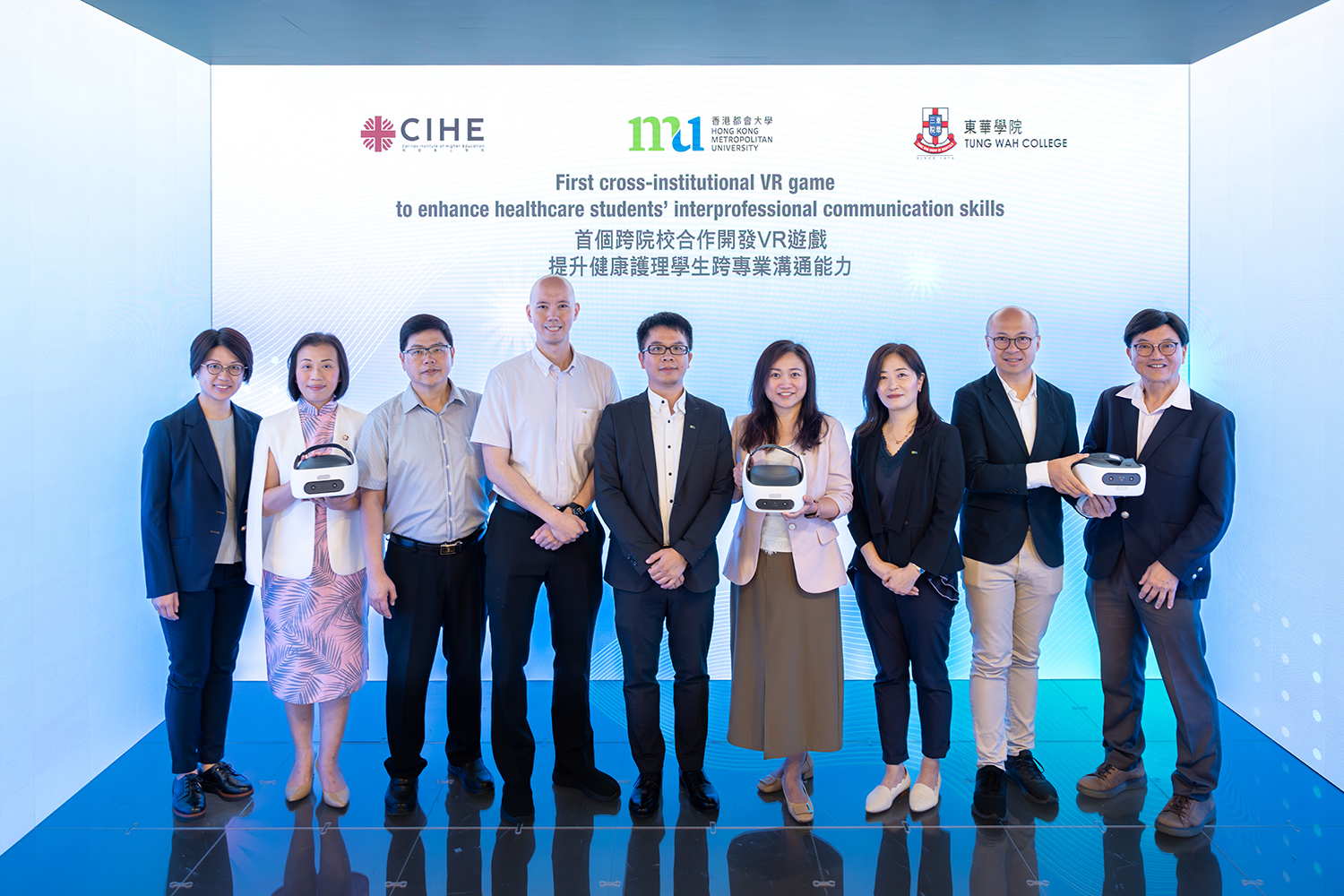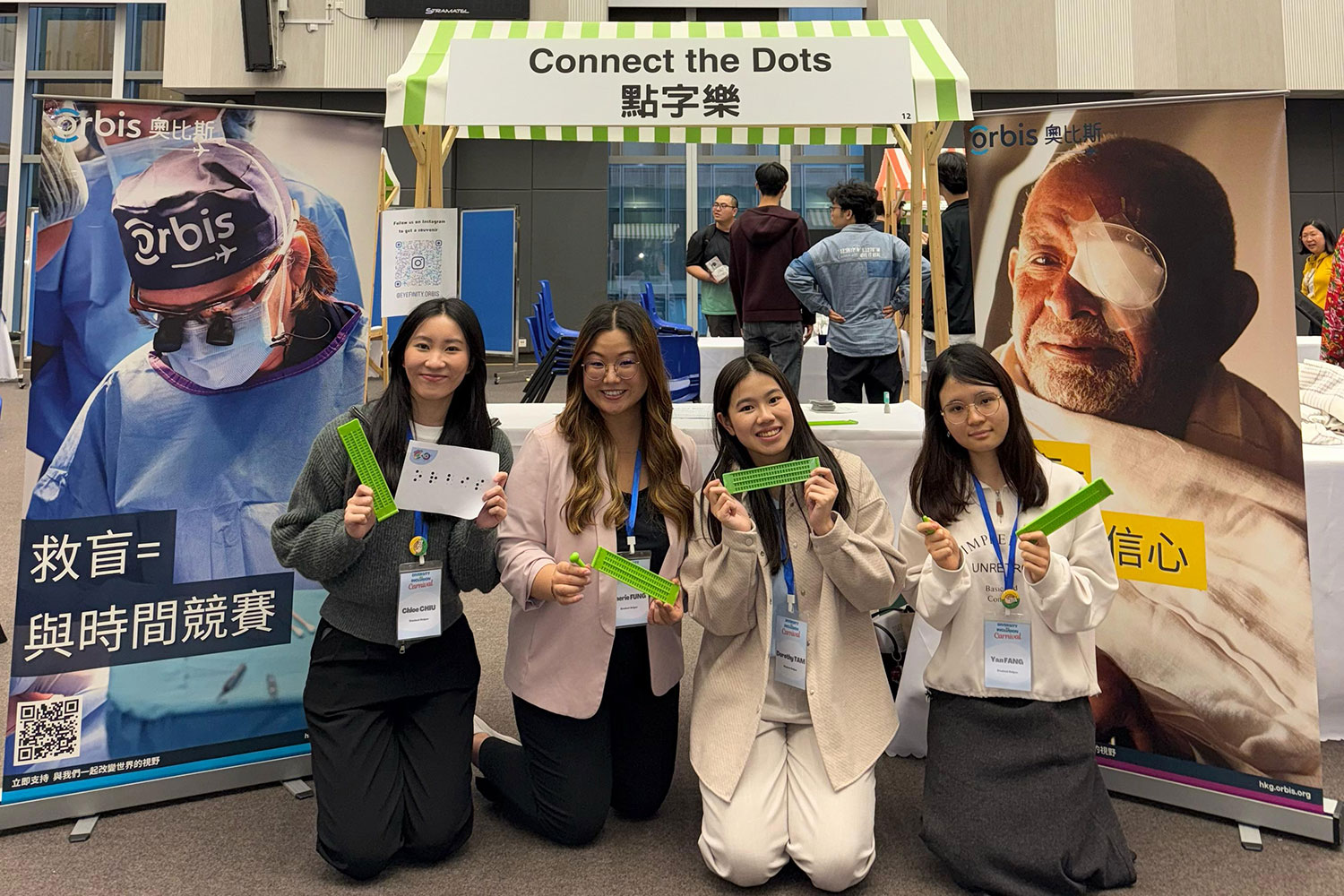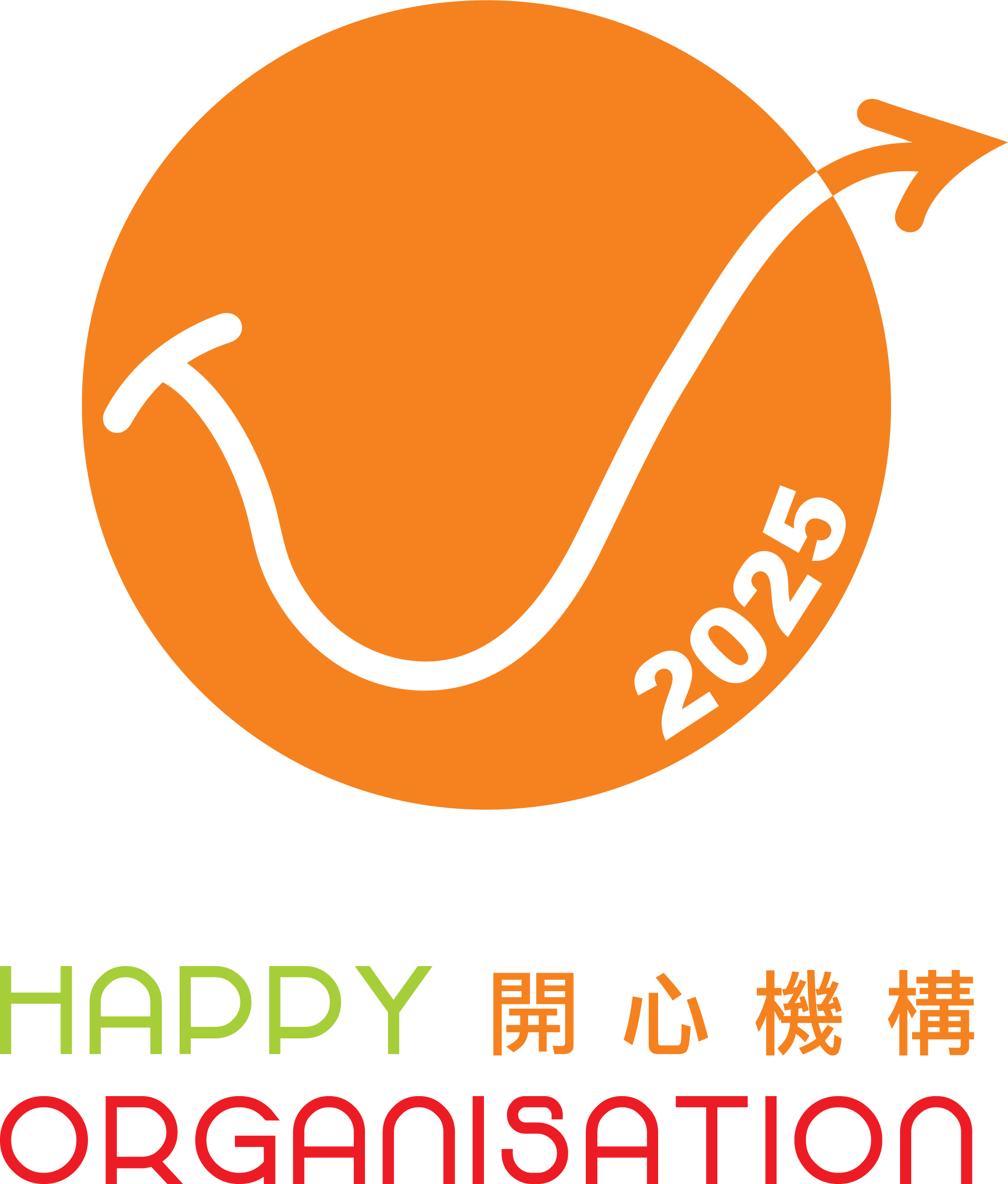Hong Kong Metropolitan University (HKMU) is actively promoting the teaching and development of healthcare through innovation and technology. In collaboration with Caritas Institute of Higher Education (CIHE) and Tung Wah College (TWC), HKMU will develop a cross-institutional Virtual Reality (VR) simulation teaching game. The primary goal of the project is to enhance the interprofessional communication skills of approximately 2,800 undergraduate nursing and physiotherapy students from the three self-financing institutions to enable the students to deliver higher-quality healthcare services to patients in the future. The project received a grant of HK$7.97 million from the Quality Enhancement Support Scheme (QESS) under the Government's Self-financing Post-secondary Education Fund. The game is expected to be ready for classroom use in 2025 at the earliest.
In Hong Kong, there is strong emphasis on promoting a multidisciplinary team approach to provide patient-centered healthcare services. Effective interprofessional communication plays a crucial role in this approach, requiring doctors, nurses and other allied health professionals to communicate clearly, concisely and assertively. These skills are essential for monitoring the condition of patients, tracking therapeutic treatment progress and preventing incidents. However, the current training in interprofessional communication in Hong Kong is insufficient.
To address this gap, Prof. Janet Wong Yuen-ha, Dean of HKMU School of Nursing and Health Studies, will lead a team of academics from HKMU, CIHE and TWC to develop a VR online game, which falls under the category of a “serious game”. The aim of the game is to enhance students' motivation and autonomy in learning, while strengthening their communication training through its interactive and feedback features. The project is scheduled to commence in January 2024 and will last for two and a half years. Compared to the high-fidelity simulation training currently provided by public hospitals and universities, the game will offer a more cost-effective and accessible means of improving communication skills.
“HKMU has always been dedicated to providing interprofessional education to students in different healthcare disciplines to cultivate a health workforce with practical competency and effective teamwork to meet the healthcare needs of the community,” said Prof. Janet Wong. “The University is delighted to collaborate with CIHE and TWC for the first time to devise an innovative and effective method to promote interprofessional education. Together, we will inject new momentum into healthcare training and continuously enhance the quality of teaching, research and service in the healthcare sector in Hong Kong, thus benefiting the community at large.”
The VR game will be designed with interactive and real-time feedback features. Students will assume the roles of nurses or physiotherapists in simulated clinical situations, in which they will handle the clinical handover of patient conditions and provide interprofessional rehabilitation care for stroke patients. Student teams will be awarded points based on their ability to make safe and proper decisions, and will receive bonus points for successfully managing particularly challenging situations. Each game session will be followed by a debriefing session, in which the students will reflect on their performance in interprofessional communication, decision-making and teamwork. They will then report back to their teachers, who will in turn provide guidance and suggestions to improve the effectiveness of teaching and learning.
Prof. Meyrick Chow Chum-ming from CIHE School of Health Sciences said: “Healthcare professionals need to possess sufficient communication skills to make effective decisions within the working team in complex and critical situations. Stroke is the fourth leading cause of death in Hong Kong, and the number of primary or secondary strokes is around 25,000 annually. Stroke patients require comprehensive and coordinated care to address their physical, mental, and emotional needs. Adequate interprofessional communication skills and professional knowledge allow nurses and physiotherapists to conduct comprehensive assessments of patients by effectively sharing observations, findings, and insights regarding the patients. This collaborative approach enhances the accuracy of assessments and enables appropriate interventions.”
Prof. Rick Kwan Yiu-cho, Associate Dean (Programmes) & Professor of TWC School of Nursing, supplemented that with the increasing complexity of healthcare needs and various diseases, interdisciplinary trainings for the students of healthcare studies become the trend. The trainings will enhance students' analytical, handling and monitoring capabilities of healthcare procedures. This innovative VR game teaching method allows students to apply what they have learnt under a safe environment which will be the new teaching method to extend to other field of interdisciplinary education.
The cross-institutional research team envisages that the design and evaluation framework of the game can be extended to programmes in other disciplines offered by the three institutions, such as pharmaceutical dispensing, radiotherapy and medical imaging. The cross-institutional project team also plans to organise a symposium to share the project results and launch a mobile version of the game for the public to download and try out. The initiative aims to deepen the public's understanding of the work of healthcare professionals.






















